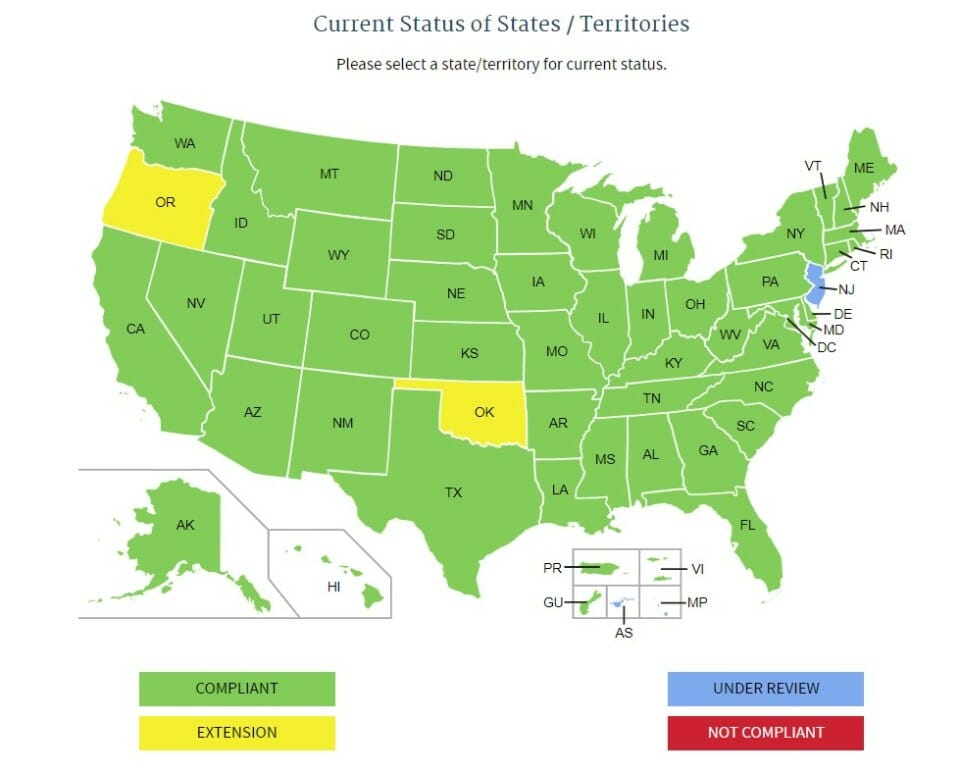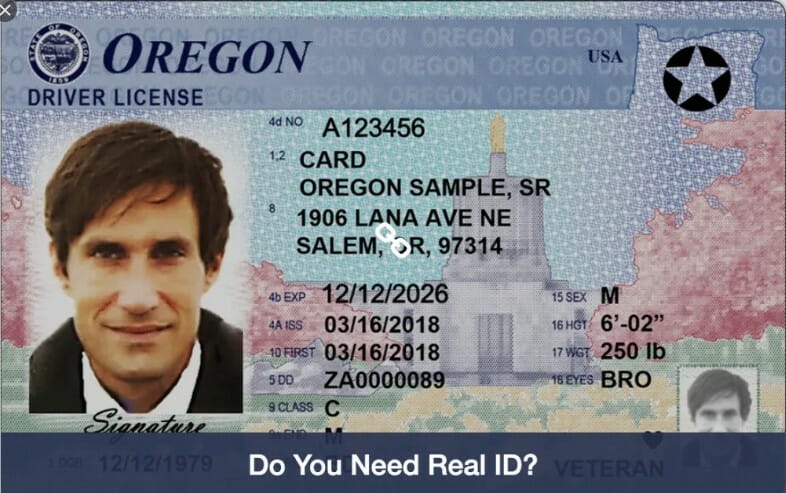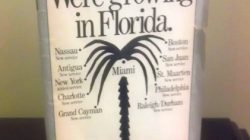The president announced yesterday at the White House Coronavirus Task Force press conference that he will delay the deadline. Previously, the deadline to obtain a REAL ID-compliant driver’s license to board an airliner was October 1, 2020. The Real ID requirement legislation came about from the terrorist attack of September 11, 2001. The law was for the various State DMV licensing to be uniformly compliant in issuing driver’s licenses that meet minimum security standards. This legislation also prohibits the Federal Government from accepting ID’s that are not compliant with the act.
Legislation to Extend the October 2020 Deadline
Before the coronavirus outbreak, my state of Oregon was already scheduled to be last in offering its citizens a Real ID-compliant driver’s license. Here is what the president said:
I’m also announcing that we’re postponing the deadline for compliance with REAL ID requirements. At a time where we’re asking Americans to maintain social distancing, we do not want to require people to go to their local DMV. We will be announcing the new deadline very soon.
Oregon Senator Ron Wyden said last week that he would introduce legislation to delay the federal REAL ID requirement for travel until at least September 2021 due to the coronavirus pandemic. This bill appears to have bipartisan support.
“In the middle of this public health crisis, it would be irresponsible and dangerous to ask Oregonians to crowd into lines at their Department of Motor Vehicles to receive the REAL ID documents they need,” Wyden said in a statement. “This legislation would postpone this document deadline of Oct. 1, 2020 for a year so people can comply without risking their health or the health of those around them.”
REAL ID Compliance To Be In Phases
The REAL ID requirement was not only for boarding commercial airliners but also to gain access to certain federal buildings. Here is the compliance schedule:
- Phase 1: Restricted areas (i.e., areas accessible by agency personnel, contractors, and their guests) for DHS’s Nebraska Avenue Complex (NAC) headquarters.
- Phase 2: Restricted areas for all Federal facilities and nuclear power plants.
- Phase 3: Semi-restricted areas (i.e., areas available to the general public but subject to ID-based access control) for most Federal facilities (subject to limitations described in the next section). Access to Federal facilities will continue to be allowed for purposes of applying for or receiving Federal benefits.
- Phase 4: Boarding federally regulated commercial aircraft.
What Can You Do If Your State Is Not Compliant
The good news is that most states are currently compliant with the REAL ID standards except:
- Oklahoma – Under the current extension,
- Oregon – Under the current extension,
- New Jersey – Driver’s license under current review for compliance.

Under the current Real ID Act, you could use the following in lieu of a Real ID-compliant driver’s license to board an airliner:
- U.S. Passport
- U.S. Passport card
- Global Entry issued ID card
Final Thoughts
Extending the REAL ID requirement deadline for boarding commercial aircraft will allow the government to concentrate on dealing with the coronavirus pandemic. For those of you that are considering getting a REAL ID-compliant driver’s license, there may be a cost to obtain one. My state of Oregon proposes charging a fee by the DMV of $30.00 for a REAL ID-compliant driver’s license or I.D. card.
If your state already offers a REAL ID driver’s license and you do not have one yet, you will have more time to upgrade your license. I will update this story after the legislation passes with the revised deadline date.
I use my CBP trusted-traveler Global Entry ID card when I go through TSA Pre-Check. The cost of TSA Pre-Check is $85.00 for five years. The cost of Global Entry is $100.00 for five years and it includes expedited customs when returning back to the United States and full TSA Pre-Check. Here is the link for the Global Entry program.




